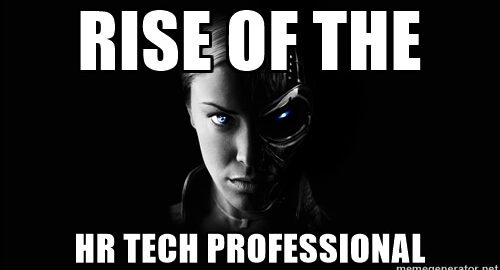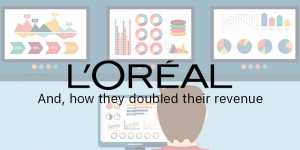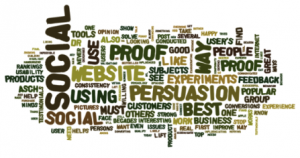The upcoming year, 2017 is dubbed by many “the year human resource technology will break its glass ceiling”. HR professionals are increasingly welcoming of new tech and this has changed the way employee engagement, performance measurement, and data analysis are done. Not to worry though, the industry has already traversed the hardest part of this change and given it a name – Human Resource Information Systems (HRIS).
The new name may have some of you thinking “OK, it has information systems in the name so it’s for the IT department to worry about”. Don’t let the name mislead you. IT departments are not measured by employee recruiting, retention, and engagement metrics. You are.
So it doesn’t matter how much, or what kind of technology gets implemented into the human resource management processes. The responsibility for the success or failure of said technology to improve the processes – will fall on the shoulders of the HR department.

Why 2017?
It’s hard to miss all the hype about millennials taking over the workplace. By 2020, about half of all workers in the US will be millennials. Millenials have become a controversial topic in HR circles. Many studies have claimed that millennials don’t stick around and jump from job to job. Some have gone as far as calling them outright lazy. However, there is one consensus when it comes to millennials, they grew up in a technological world and are much more tech savvy than previous generations.
As millennials start to take up managerial positions in organizations, the inherent fear that their predecessors had of technology will remain. We can expect that HRIS systems to penetrate low-tech small businesses, where technology has been greeted with more than a healthy degree of fear.
The new millennial HR managers consider technology is a friend of HR, not a foe. For them, it’s clear we’re not getting replaced by recruitment and engagement bots anytime soon. But, that doesn’t mean the future won’t require HR pros to adjust.

So what does this futuristic HR professional look like?
- TechnologicalI’ll start with the most obvious trait of our HR technology professional – tech-oriented, and even a little bit (or a lot) geeky. That means that they are not just proficient in the use of popular HR management platforms and online services. It means that the ideal HR professional has the ability to learn systems, adjust to them, and maximize their potential with ease.
- AnalyticalTalent analytics is a hot buzzword in HR, but sophisticated algorithms and big-data solutions are many, and choosing the right ones can often the main challenge. The HRtech professional must know how to analyze the data. Although it sounds a bit recursive, being able to analyze data and then make suggestions or take actions to improve the effectiveness of HR information systems, their implementation, and effect is a crucial skill the HRtech pro will need in the upcoming years.
- Multi-taskerIf you think your work already demands you to juggle too many ball – you’re not going to like the future. HRtech will usually integrate with many other technologies across department. You’ll need to be able to work with multiple systems and platforms, coordinate information between them… And all this, while keeping up with updates and innovation in the HR tech field and corporate strategies and their interaction with HR activities. Not easy, but you’ll agree that multitasking is a helpful skill for any employee, especially one with many duties and responsibilities – like the HR manager.
- StrategicWith the right technology (and of course, the right HR manager), corporate strategy, HR strategy and IT strategies are synchronized. By having a clear understanding of company goals, and the role of HR in fulfilling them, you can choose the right technological tools and apply them correctly.
- CreativeSome in the field, might find themselves worried that the technological advances in HRtech could leave them out of a job. After all, studies do show that machines are better than people at choosing candidates for jobs. But some things machines will never be able to. Beyond the obvious need for human touch in human resources (human – it’s right there in the name!), machines have yet to perfect their ability to be creative. The HRtech pro uses technology in creative ways to hire and manage talents, as well as engage employees across communication channels.
- LeaderAnother thing computers still can’t do (and we’re all pretty grateful for that, as humans) is lead. Technology can empower HR teams in decision making but inevitably it’s up to the HR manager to integrate these tools and solutions into the work processes. Since innovation cannot be forced, it’s the role of the HRtech professional to lead the team forward and have IT follow and support.

Welcome in HRtech
Human resources will always be about humans. But a plethora of technological solutions offer us smarter ways to sort through CVs, rate employee performance, and engage company employees across the globe. The new HR tech pro needs to be like a Jaco-of-all-trades type handyman who can handle a large selection of tools. This vast selection can get confusing, and so when it comes to selecting and implementing HR technologies – many HR managers leave it to the IT department. Which is a mistake, as IT cannot fully assess the needs and goals of HR (no matter how hard they may try).
At the end of the day, the role of the HR technology professional is to find the perfect alignment of corporate strategy, HR goals, and HR tech implementation. It’s no easy task, but it’s what the future demands.
Business & Finance Articles on Business 2 Community(66)
Report Post







